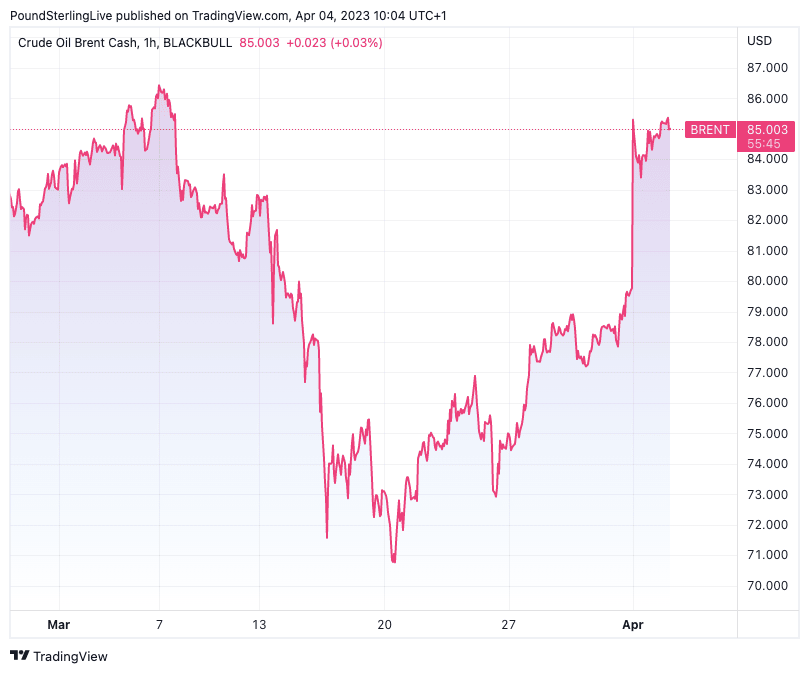Fears of $100 / barrel Oil Price Build

The surprise production cut from OPEC+ continues to stoke concerns around inflation, with brent crude trading over $85 a barrel.
There are some outside concerns this could encroach on the $100 mark once more, which would have legitimate ramifications for monetary policy and has already led to a reduction in short positions in oil.
In terms of the impact for consumers, higher energy bills are not a given at this point, and prices would need to remain elevated for a longer period of time before that conversation takes place.
The unexpected shift in the oil market has manifested itself in muted trading in the US, with futures in the three major indices ranging from flat to mildly negative.
In the last full trading session, the Nasdaq composite shed 0.3% as technology stocks felt the ramifications of potentially tighter monetary policy, while energy stock gains helped the Dow and S&P 500 climb.
A decision by the Reserve Bank of Australia to pause interest rate rises, combined with the UK market’s reliance on big oil names, means the FTSE 100 is largely expected to continue its positive run today.
While equity markets have largely had a strong start to the year, attention is turning to what may happen next.
A weak economic outlook and the new oil shock could inject some volatility into things in the short to medium term.
Cosmetics giant L'Oréal has agreed to buy Australian cult favourite, Aesop as it bolsters its skincare offering.
This is the group’s biggest takeover in quite some time and suggests the strong faith management has in the new brand.
This pivot towards a more luxury and hedonistic brand suggests L'Oréal is padding out its offering to help insulate against an increasingly tough market.
L’Oréal shares are up 23% in the year to date, which adds a level of pressure for the $2.5bn to pay off.
In another blow to UK tech, Virgin Orbit has failed to secure new investment and will cease operations.
The UK's lack of space infrastructure will have contributed to the demise, and seeing a home-grown mission fail comes as another knock to the UK's efforts to be seen as a comfortable environment for high-octane, high-growth companies.
Sophie Lund-Yates is lead equity analyst at Hargreaves Lansdown.